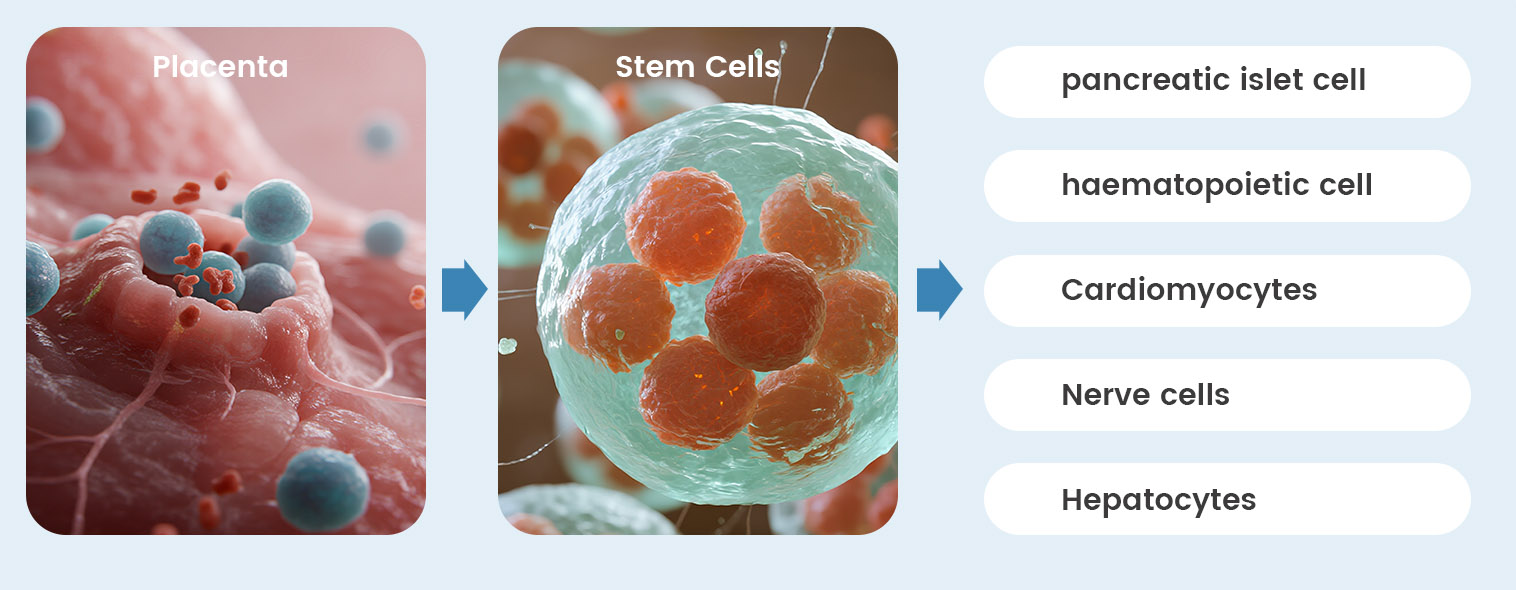What are placental mesenchymal stem cells?
The placenta is an organ of material exchange between the mother and the fetus, a combination of embryonic and maternal tissues, and consists of the amniotic membrane, the follicular chorionic villus, and the underlying meconium. In addition to playing an important role in fetal development and nutritional support, the placenta is also a reservoir of stem cells!
Placental MSCs are a family of pluripotent stem cells derived from neonatal placental tissues, with greater proliferative capacity and differentiation potential than umbilical cord MSCs.

Uses of Placental MSCs
Scope of application:Cardiovascular and cerebrovascular diseases, metabolic diseases, immune system diseases, degenerative diseases, neurological diseases, digestive system diseases, etc., which are more widely applied than umbilical cord MSCs.







